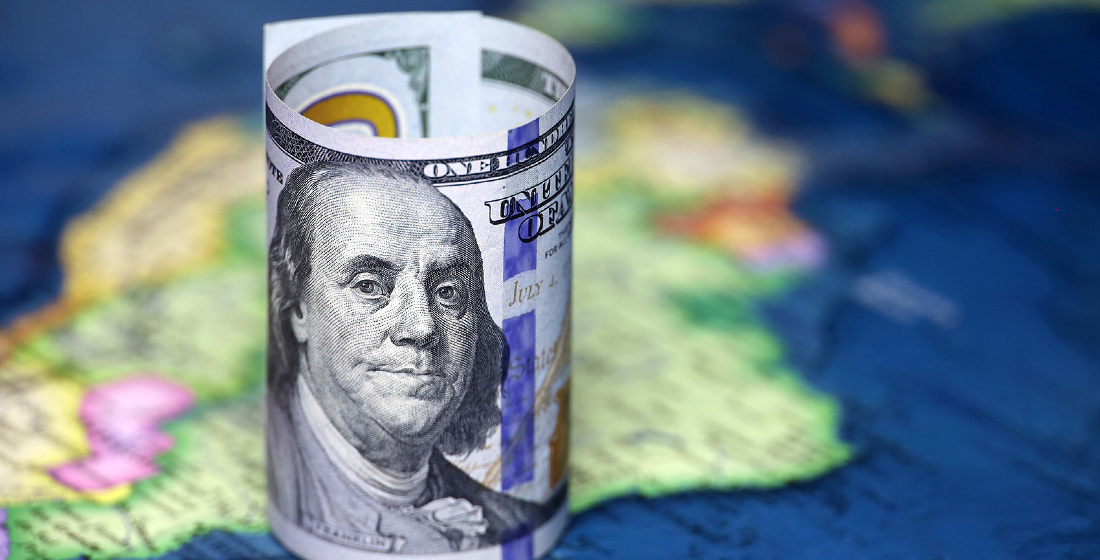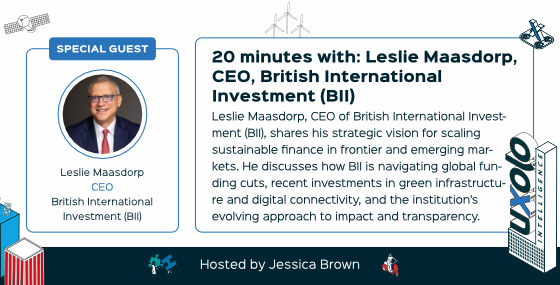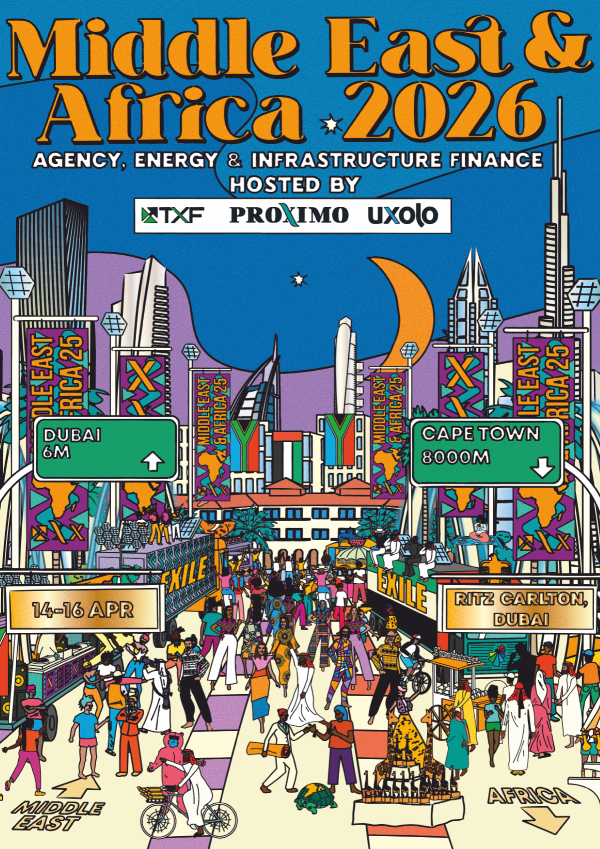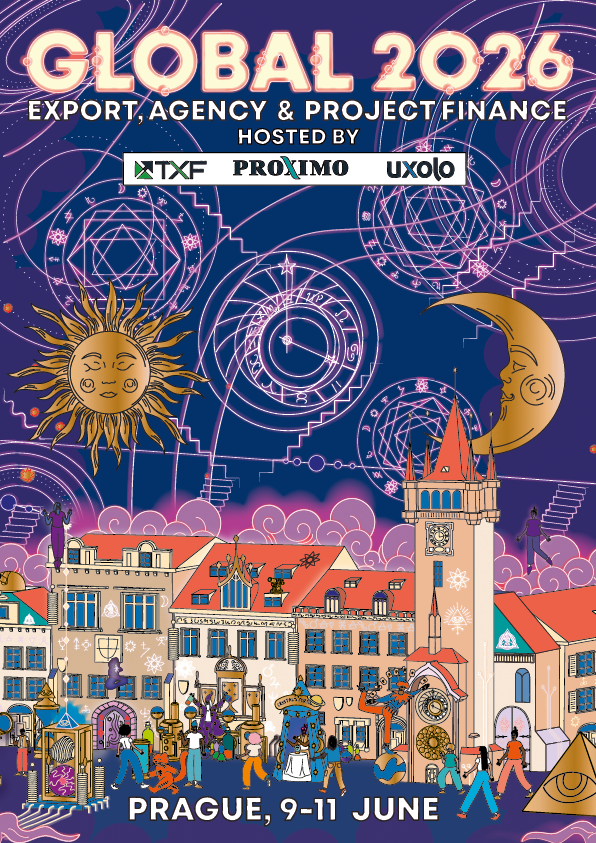2020: Impact investment’s breakthrough year
The global sustainability focus of recent years has seen impact investing growth accelerate rapidly: Global Impact Investing Network (GIIN) estimates the size of the market at $715 billion. Impact investment funds now operate in terrain once solely the reserve of DFIs. Seeking an upstream take on the trends affecting the market, Uxolo caught up with Tribe Impact Capital to find out whether the industry’s purple patch has survived the Covid storm.
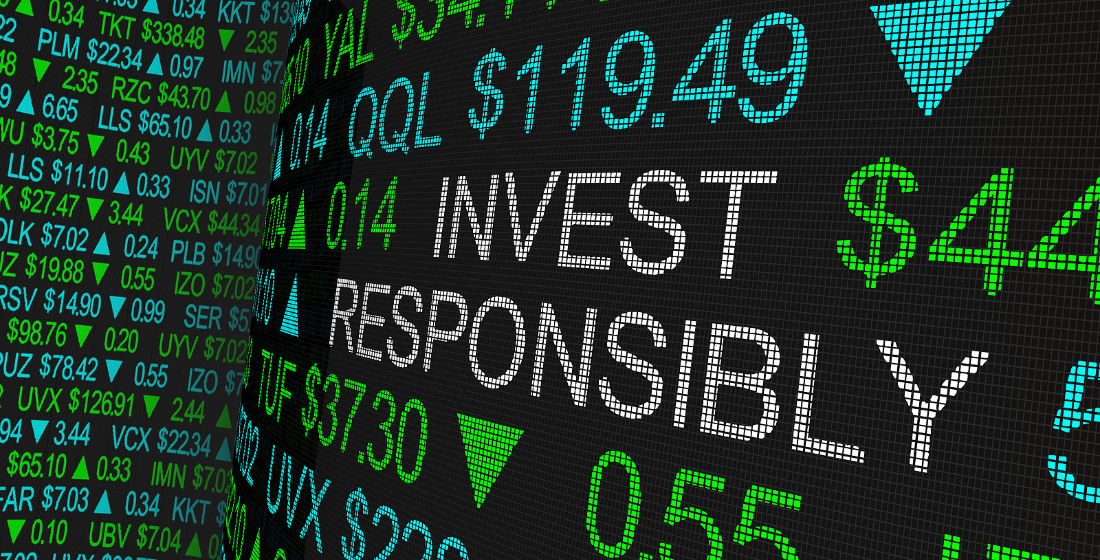
Uxolo: Did impact investment flows continue to grow over 2020, or did the pandemic hamper that progress?
Frederik Kooij, Chief Investment Officer, Tribe Impact Capital (FK): It was a landmark year for impact investing in general. ESG and impact investing saw way more inflows and performed really well. The size of our business grew by between 200-300%, and the run rate seems to be extremely strong going into this fiscal and calendar year.
That’s because what we’re doing is becoming a lot more relevant to people’s understanding of what change is required in finance, and also the fact the actual products are now available.
According to the Investment Association, net flows just in the UK were around $7 billion into ‘responsible funds’ in 2020—up 275% year-on-year. So there’s a huge amount of more interest in the space and I think that Covid has been a massive catalyst for that as well.
Amy Clarke, Chief Impact Officer, Tribe Impact Capital: Whilst two years ago everybody was saying that impact investment needed to go mainstream, what we think has actually happened is that the mainstream has woken up to impact. And that’s a very different psychology, and in many ways a much more profound and lasting behaviour set. Investors are finally waking up to these wicked problems the world is facing. It’s super exciting.
Uxolo: How have impact investment funds responded to the pandemic?
Amy Clarke: It’s been really interesting with the pandemic because a lot of investors have been incredibly nervous, not just because of Covid but also other crises in the background such as the climate crisis. So many have been looking for safe harbours. There’s now enough information out in the markets—both bull and bear—that indicates that companies that are managed more sustainably are more resilient to the ebbs and flows of global markets. What Covid and the climate crisis have done is really bring into sharp focus different types of sectors; for example, Covid has really shone a light on healthcare and the climate crisis has really shone a light on cleantech and renewables.
Calastone estimates that on the back of the recent vaccine announcements, a total of £820 million of new capital was added to UK-based ESG funds—more in the single month of November than in the entire five years to January 2020.
What investors have been waking up to, particularly last year, is that good investing is picking those companies that are very well run and understand the risks facing their businesses, but also understand the opportunity those risks present. When you look at something like Covid, it sets very clear guard rails of what we should and shouldn’t be doing. And investors like certainty, and those guard rails have really allowed that in their decision making.
Uxolo: Aside from the direct Covid response, what were the hot sectors for impact capital over 2020?
Amy Clarke: Technology firms have been flying pretty strongly on the back of remote working and the need for robust digital infrastructure. We’ve seen healthcare come through for obvious reasons, particularly vaccine development. Cleantech and renewables is still powering forward, and will continue to do so with all these net-zero declarations coming through.
Food and agriculture have been thrown into the spotlight massively because of their relationship with Covid—the incursions into these very sensitive ecological areas have largely come about because of the food and agri and textiles/consumer-based industries, so we’ve seen investors wake up to the role those industries have in stimulating crises like Covid. Food and agri will continue to come through this year as significant thematic, especially with the Kunming UN Biodiversity Conference in March.
And then within all of that, there’s this very keen focus now on human empowerment and human dignity. We’ve seen this year a number of issues relating to the S in ESG—so companies not managing their human supply chain very well. As a result, there’s been a big call in the market to say that as we move towards a low-carbon economy, as we move to recode food and agriculture, etc, we have to be doing all this with human dignity put front and centre. We’ve seen a big call about ‘just transition’, ‘inclusivity’, ‘empowerment’, ‘dignity’—which is just going to get louder over 2021.
Uxolo: Were there any particularly popular regions?
Frederik Kooij: It’s been across the board really. The thing the market has struggled with in the past is to move outside its core impact market, where a lot of our “philosophical awakening” started—i.e. north and western Europe. What’s encouraging is the fact that we’re seeing net-zero climate declarations from all over the world now: China in September, with their goal for 2060; and now with Biden in the US.
In the US, there will be more local flows that will be tuned into more responsible, sustainable investing and that will really set the scene for companies to position themselves more for those types of investors, which will allow more global money to flow in that direction.
Amy Clarke: At the beginning of 2020, there was an exodus from emerging markets. A lot of people were very nervous about keeping their capital in emerging markets and they fled to the lower-risk, safer, less-volatile markets where there were very high levels of liquidity. But we saw this call come out for investment in the emerging markets given the amount of heavy load bearing those markets will have to do for the sustainable development goals. And we’ve since seen some of the development banks step up as a result; for example, the African Development Bank launched a $3 billion pandemic bond. We’ve seen a number of the development banks become more engaged in the fixed-income space and issue fixed-income bonds that help them take up some of the slack.
It’s been a tough year for Western countries, but it’s been exponentially tougher for developing countries. I think this year has actually opened a lot of people’s eyes as to the level of extraordinary complexity that sits within finance, and also the amount of impact—both negative and positive—that can happen in a very short period of time by different finance levers being pulled.
Uxolo: What financing types or mechanisms were in vogue in 2020?
Frederik Kooij:What we didn’t see enough of was the fixed-income part of the equation, which is mostly because fixed income is typically purchased by institutions—be it an insurance company or large asset manager. In equity, you can be a bit innovative because you can raise a fund based on retail, but you can’t do that in the fixed-income world. The institutional world has been a bit further behind and could be a bit more courageous and inventive as to what they want to invest in from a responsible/sustainable perspective. So we’re still far behind where we need to be in fixed income. There are some movements there; for example, the divestment movement, which is putting pressure on banks for what they’re doing in their lending books.
We’re also seeing a lot more investment trusts being launched. Broadly, what you’re trying to invest in for an impact framework are either government-backed schemes or longer contract lengths on a project-by-project basis. It’s kind of something in the public sphere but it’s not that easy to invest in on a public basis; and investment trusts, as closed-end vehicles, are quite well suited to that. So we’ve seen quite a lot of the innovation in that space over the last two years; for example, in social housing, renewable energy, and microfinance.
Amy Clarke: The market is very biased towards equity; equity is quite sexy, despite the fact that it’s largely a secondary market. You get a position in a company and if you choose the right one, you get potentially a significant upside from investing in it. Fixed income in a low-inflation world is a little bit more challenging. However, in equity the only real tool that you have is through stewardship and shareholder activism, and a lot of fund managers choose to forego a lot of that responsibility. But we need more active and forceful stewardship to come through in equity.
The fixed-income space is actually where you can make much more change, because you can link those proceeds to specific projects with specific outcomes. So you can trace the capital and you can own the impact as a result. And you need both of those markets working alongside each other, and investors who have both fixed-income and equity positions in the same company need to be collaborating more to create that kind of change.
Debt is the lifeblood of most businesses yet historically it hasn’t really been used as much as it could be. But the rise of things like social impact bonds that are linked to things like payment-by-results have given the fixed-income world the jolt to recognise that it’s an incredibly powerful tool. And if it’s leveraged into that impact world, you can make quite a significant amount of impact in quite a short period of time.
Uxolo: As impact investment becomes more mainstream, the threat of greenwashing or social washing becomes a greater consideration. What can be done to address that?
Amy Clarke: If you look at the EU Sustainable Finance Action Plan, it’s incredibly comprehensive in terms of what it’s trying to do and it covers the benchmarks, the labelling, the taxonomy, etc—it’s all aimed at reducing the likelihood of greenwashing, social-washing, rainbow-washing, etc. And the EU’s plan is very much being seen as the template that other regulatory bodies can follow. We’ve seen the UK government announce a UK taxonomy around a month ago, which will hopefully be in line with the EU’s. And the renewed relationship announced between the EU and the US two weeks ago very much has the role of business and finance anchored in it, so we’re likely to see the US copy some of the EU’s approach. There is also a very strong relationship between the EU and China; the EU has spent a lot of time advising and supporting China on its transition to becoming carbon neutral by 2060.
So you’ve got these big trading blocks that are acutely aware of the issues around greenwashing and who are moving to address them. And then you’ve got individual countries moving to address them as well, so any investor out there who is thinking about claiming something that isn’t actually claimable is going to find life very hard very soon.
Uxolo: What trends will we see in the industry over 2021?
Frederik Kooij: Much of the same really — a lot more focus and importance placed on both ESG and impact investing broadly. We’ve got the COP26 climate conference coming up in November, which is going to focus a lot of attention throughout the year. Biden’s coming in later this month and he’s going to host some sort of climate summit within the first quarter. You’ve got China confirming its five-year plan in March, which will be confirming some of the investments and reorientation that they have signposted in their net-zero declaration in September. And the EU recovery fund is going to kick into gear as well, which was finally agreed upon last month, and disbursements will start in the second half of 2021. So you’re going to see a huge amount of policy focus on this, and investors and management teams will be absolutely obligated and incentivised to come along. And there won’t be any reduction in focus on sound corporate behaviour from the press, from investors, from everyone—there’ll be nowhere to hide.
Amy Clarke: We’re going to see biodiversity come through very loudly next year. Partly as it’s already started to come through as a narrative; how we manage natural capital within the boundaries that have been set by nature. The Covid crisis has brought that into very sharp focus this year.
And we’ve got another COP in China in March. The US will effectively re-sign themselves back into the Paris Climate Accord. COP26 is also a blue COP, so we’ll have the role of the oceans significantly focused on. We’ve had a world leading net-zero declaration from the UK recently. You’ve got a lot of political pressure now coming from big trading blocs and individual countries that I think will create this network of regulation and policy that is, again, going to create more guard rails for businesses.
But you’ve also got businesses that are very clearly putting bluewater between themselves and others. If you look at the difference between Exxon’s valuation 10 years ago and now, and some cleantech or renewables leaders like Vestas or Orsted, the pivot that has happened in market capitalisation and share price is extraordinary. So this competition element between companies that are future-fit and those that aren’t is creating bluewater between them, and that’s good because it’s going to increase the pressure on the latter to make the move.
2020 got everybody thinking how and why this has all happened; so hopefully it sets the scene for 2021 to be the year we knock it out the ballpark.


